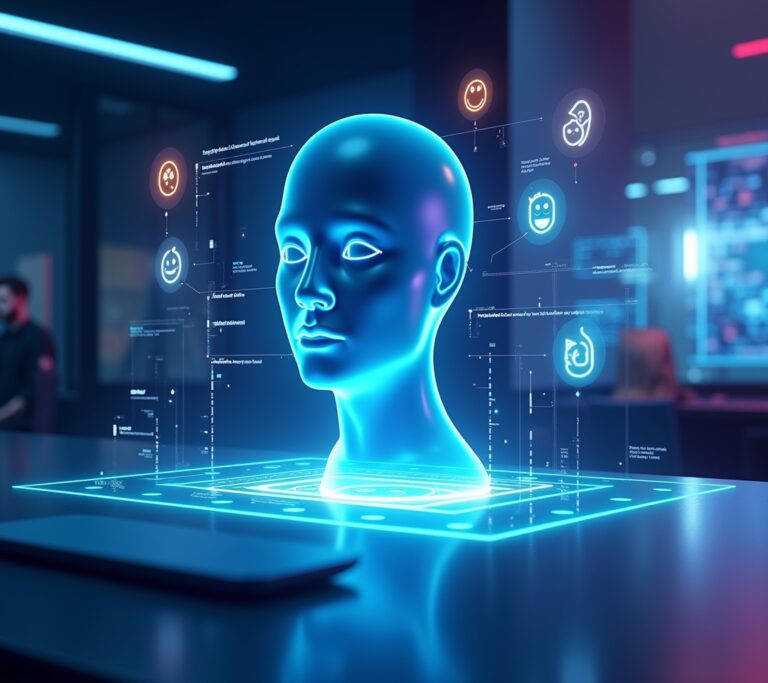Advertisements
When I first stumbled upon the term “quantum computing,” I felt like I’d entered a science fiction novel. It sounded complex, theoretical, and—frankly—unreachable. However, as I dove deeper and watched the rapid developments in this space, I realized that quantum computing is no longer a futuristic concept. It’s already transforming the world around us, and 2025 may be the year it truly begins to impact our daily lives.
In this post, I’ll walk you through what quantum computing actually is, why it’s different from the computers we use today, and why you should care about it this year—especially if you’re curious about the future of technology, business, and cybersecurity.

What Is Quantum Computing?
Before anything else, let me explain the basics as I understand them. Traditional computers, like the one I’m using to write this, rely on bits. These bits can be either a 0 or a 1. Everything you see on your screen—text, images, videos—is encoded using combinations of those bits.
Quantum computers, on the other hand, use quantum bits, or qubits. Unlike regular bits, qubits can be both 0 and 1 at the same time, thanks to a mind-bending property called superposition. Because of this, quantum computers can process information in a fundamentally different way.
As if that wasn’t wild enough, there’s also entanglement, another quantum principle. When two qubits are entangled, changing the state of one instantly affects the other—even if they’re far apart. This allows quantum computers to solve certain problems exponentially faster than classical ones.
My First Encounter With Quantum Logic
When I first read about quantum logic, I couldn’t wrap my head around it. I kept wondering: How can something be in two states at once? But the more I explored, the more I realized that quantum computers are less about replacing your laptop and more about solving problems our current machines can’t handle.
For example, simulating molecules for drug discovery, optimizing supply chains, or even cracking encryption codes—these are areas where quantum computing shines. And companies like IBM, Google, and startups like Rigetti are racing to make these use cases real.
Why You Should Care in 2025
Let’s get real: most of us won’t own a quantum computer anytime soon. But here’s why this technology matters right now.
Quantum Is Going Commercial
In 2025, we’re starting to see quantum-as-a-service platforms go mainstream. IBM’s Quantum Cloud, for example, allows businesses and researchers to run experiments on actual quantum hardware. This opens the door to a wave of innovation we’ll all feel—whether we notice it or not.
Cybersecurity Is About to Change
Most current encryption methods rely on classical math that quantum computers could break in seconds. While true quantum supremacy is still years off, many governments and organizations are preparing for a post-quantum cryptography world. That means your data, passwords, and secure communications are being rethought from the ground up.
Big Business Is Investing Big
Major players like Microsoft and Amazon are putting real money into quantum development. When I see this level of investment, I can’t help but think: this is where the next tech revolution begins. If you’re in tech, finance, healthcare, or logistics, quantum computing could soon touch your industry.
Where Is Quantum Computing Being Used?
I was surprised to learn just how many industries are experimenting with quantum today. Here are some examples that really opened my eyes:
- Healthcare: Simulating protein folding to design better drugs faster.
- Finance: Optimizing trading strategies using quantum algorithms.
- Energy: Improving battery design and materials discovery.
- Transportation: Finding the most efficient routes for shipping and logistics.
I realized that the shift isn’t happening overnight, but it’s definitely underway—and we’re likely to feel the impact in ways we can’t yet predict.
Is Quantum Computing Hype or Real?
This was my biggest question going into this topic. After all, many disruptive technologies go through a hype phase before settling into something useful but less revolutionary than promised.
However, what sets quantum computing apart is its foundational shift in how we compute. We’re not just upgrading old tech—we’re building something entirely new. Yes, there’s still hype, but the potential is enormous. And when so many smart people and powerful institutions are betting on it, I believe it’s worth paying attention.
Getting Started: How You Can Learn More
If you’re feeling inspired to explore further, here’s what helped me get started:
- IBM Quantum Experience: A free platform where you can run real quantum experiments in the cloud.
- Quantum Country: A beautifully designed site that uses spaced repetition to help you learn quantum concepts.
- Qiskit: An open-source framework for working with quantum circuits using Python.
These resources helped me grasp the basics without needing a physics degree.

Embrace the Quantum Future
When I started exploring quantum computing, I was intimidated. But as I dug deeper, I found myself fascinated—and even a bit hopeful. Yes, there are still many technical hurdles. But if history has taught us anything, it’s that bold ideas drive big changes.
So in 2025, whether you’re a student, a professional, or just someone curious about where tech is headed, I encourage you to keep an eye on quantum. It’s not just hype—it’s the beginning of something extraordinary.
Stay tuned to Tech Digest for more deep dives like this. Let’s explore the future together—one bit, and one qubit, at a time.




[…] more tech insights like this, don’t forget to follow Tech Digest. I share weekly posts that keep you ahead of the curve. Stay […]